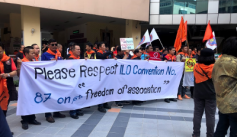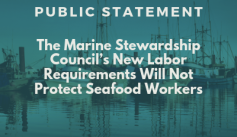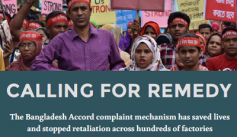On 11 September 2012, Ali Enterprises burned to the ground in Baldia Town, Karachi, killing over 250 workers, making it the most deadly factory fire ever. Today, textile and garment factories in Pakistan remain just as unsafe as they were seven years ago. Although multiple initiatives aimed at addressing workplace safety have been initiated in Pakistan since then, they lack the necessary elements that must be in place to ensure safety. All of these initiatives have limited transparency and none of them are enforceable.
 Disclosed the names and addresses of their supplier factories
Disclosed the names and addresses of their supplier factories



